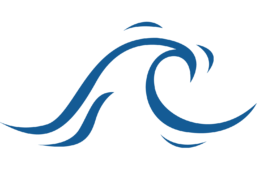Sit, Stay, Retire, Rollover: Let’s Talk Retirement Plan Rollover Options
Retirement planning is an essential aspect of every working person’s financial life. A retirement plan rollover is a process of transferring funds from a qualified retirement plan to another. Many individuals consider rolling over their retirement plan when leaving an employer, retiring, or for other reasons.
In this blog, we’ll answer some of the most frequently asked questions about retirement plan rollovers.
What is a Retirement Plan Rollover?
A retirement plan rollover is a process of transferring funds from a qualified retirement plan, such as a 401k, to another retirement plan or an individual retirement account (IRA). The funds are transferred without any tax implications, provided the transfer is done correctly.
Why Rollover?
By rolling over, you can defer taxes on the distribution until you withdraw it from the new plan, allowing your savings to continue growing tax-free. If you choose not to roll over the distribution, it will be subject to taxation (excluding qualified Roth distributions and previously taxed amounts), and you may also be liable for additional taxes unless you qualify for one of the exceptions to the 10% early distribution penalty. Additionally, reasons for rolling over can include:
More Control over Investment Options:
When you roll over your retirement plan, you have more control over your investment options. In many cases, an IRA provides more investment choices than a 401k.
Simplify Your Finances:
Consolidating all your retirement accounts in one place can make it easier to manage your finances and track your investments.
Lower Fees:
401k plans can charge higher fees than IRAs. Rolling over your 401k to an IRA can reduce your investment fees.
Easier to Access Funds:
In some cases, accessing funds in an IRA may be easier than accessing funds in a 401k.
Rollover Options:
You generally have four options when you leave a job and have a 401k account:
- Leave the money in your former employer’s 401k plan
- Roll the money over to a new employer’s 401k plan
- Roll the money over to an IRA
- Cash out the 401k
Let’s take a look at each of these options.
Leave the Money in your Former Employer’s 401k Plan
Leaving the money in your former employer’s 401k plan may be a viable option for individuals who are satisfied with the investment options and fees associated with their existing plan. This option allows you to keep your retirement savings in a familiar place, and you can still keep an eye on your account balance through the plan’s online portal or periodic statements.
Another advantage of leaving your money in your former employer’s 401k plan is that it can be easier to manage and track your retirement savings. By keeping all of your retirement savings in one place, you can get a better sense of how much you have saved and how much more you need to save to meet your retirement goals.
However, keep in mind that you may not be able to contribute to the account once you leave the company, and your investment choices may be limited to the options provided by your former employer’s plan. Additionally, your former employer may charge administrative fees for maintaining your account. Be sure to check with the plan administrator about any associated fees and investment options before deciding to leave your money in the plan.
Roll the Money Over to a New Employer’s 401k Plan
Rolling the money over to a new employer’s 401k plan is an option that can allow you to continue saving for retirement while consolidating all of your retirement savings into one account. This option may be suitable if you have found a new job with an employer that offers a 401k plan and you are satisfied with the investment options and fees associated with the plan.
One advantage of rolling over your 401k to a new employer’s plan is that it can be easier to manage and track your retirement savings. By keeping all of your retirement savings in one place, you can get a better sense of how much you have saved and how much more you need to save to meet your retirement goals.
Another benefit of rolling over your 401k to a new employer’s plan is that you may have access to different investment options or lower fees, which can potentially help your retirement savings grow faster. Additionally, some employers offer matching contributions to their employees’ 401k plans, which can help boost your retirement savings.
However, it is essential to review the investment options, fees, and matching contribution rules of the new plan before deciding to roll over your 401k. Some plans may have higher fees or limited investment options, which can negatively impact your retirement savings. Additionally, rolling over your 401k may take time to process, which could leave your retirement savings temporarily in limbo.
Rolling Over into an Individual Retirement Account (IRA)
Rolling the money over to an Individual Retirement Account (IRA) is another option when leaving a job and having a 401k account. This option can offer more control over your retirement savings by providing access to a broader range of investment options than those offered by a 401k plan.
One advantage of rolling over your 401k to an IRA is the potential for lower fees. Some 401k plans charge high fees for administration and management, which can eat into your retirement savings. Rolling over your 401k to an IRA can potentially reduce these fees, which can help your retirement savings grow faster.
Another benefit of rolling over your 401k to an IRA is the potential for increased investment flexibility. An IRA can offer access to a broader range of investment options, including stocks, bonds, mutual funds, and exchange-traded funds (ETFs), which can help you diversify your portfolio and potentially earn higher returns.
However, it is essential to note that rolling over your 401k to an IRA may also have disadvantages. For example, you may lose the ability to borrow against your retirement savings, as IRAs do not typically offer loans. Additionally, some IRAs may charge fees for account maintenance or investment management, which can also impact your retirement savings.
Before deciding to roll over your 401k to an IRA, it is crucial to review the investment options, fees, and potential tax implications of the IRA. Additionally, it is essential to consider your retirement goals and investment strategy before making any decisions about your retirement savings.
Cash out the 401k
While cashing out your 401k may seem like a tempting option when leaving a job, it is generally not recommended. Cashing out your 401k means you will receive the funds as a lump sum payment, but you will also be subject to taxes and penalties.
Firstly, any funds you withdraw from your 401k account will be subject to ordinary income taxes. This means that you will have to pay taxes on the full amount of your withdrawal, which could be a significant tax bill.
Additionally, if you are under the age of 59 ½, you will also be subject to a 10% early withdrawal penalty on the amount you withdraw. This penalty is in addition to any taxes you may owe and can significantly reduce the amount of money you receive from your 401k account.
Cashing out your 401k also means you will be losing out on potential future growth of your retirement savings. If you withdraw your funds now, you will no longer have the opportunity to earn investment returns on that money in the future.
Finally, cashing out your 401k may also have long-term consequences for your retirement savings. Withdrawing a large sum of money from your retirement savings early can significantly impact the amount of money you have available for retirement in the future.
Overall, cashing out your 401k should be a last resort option when leaving a job. It is essential to consider the potential tax implications, penalties, and long-term consequences before making any decisions about your retirement savings.
How Long Do You Have to Move Your 401k after Leaving a Job?
If you decide to roll over the money, you typically have 60 days to complete the rollover. However, it’s usually best to complete the rollover as soon as possible to avoid potential tax implications or penalties.
Learn More About RWM
Contact RWM today to review your existing 401k or talk through a plan of action to offer retirement savings to your employees.
This information was developed as a general guide to educate plan sponsors but is not intended as authoritative guidance or tax or legal advice. Each plan has unique requirements, and you should consult your attorney or tax advisor for guidance on your specific situation. In no way does the advisor assure that, by using the information provided, the plan sponsor will be in compliance with ERISA regulations.










